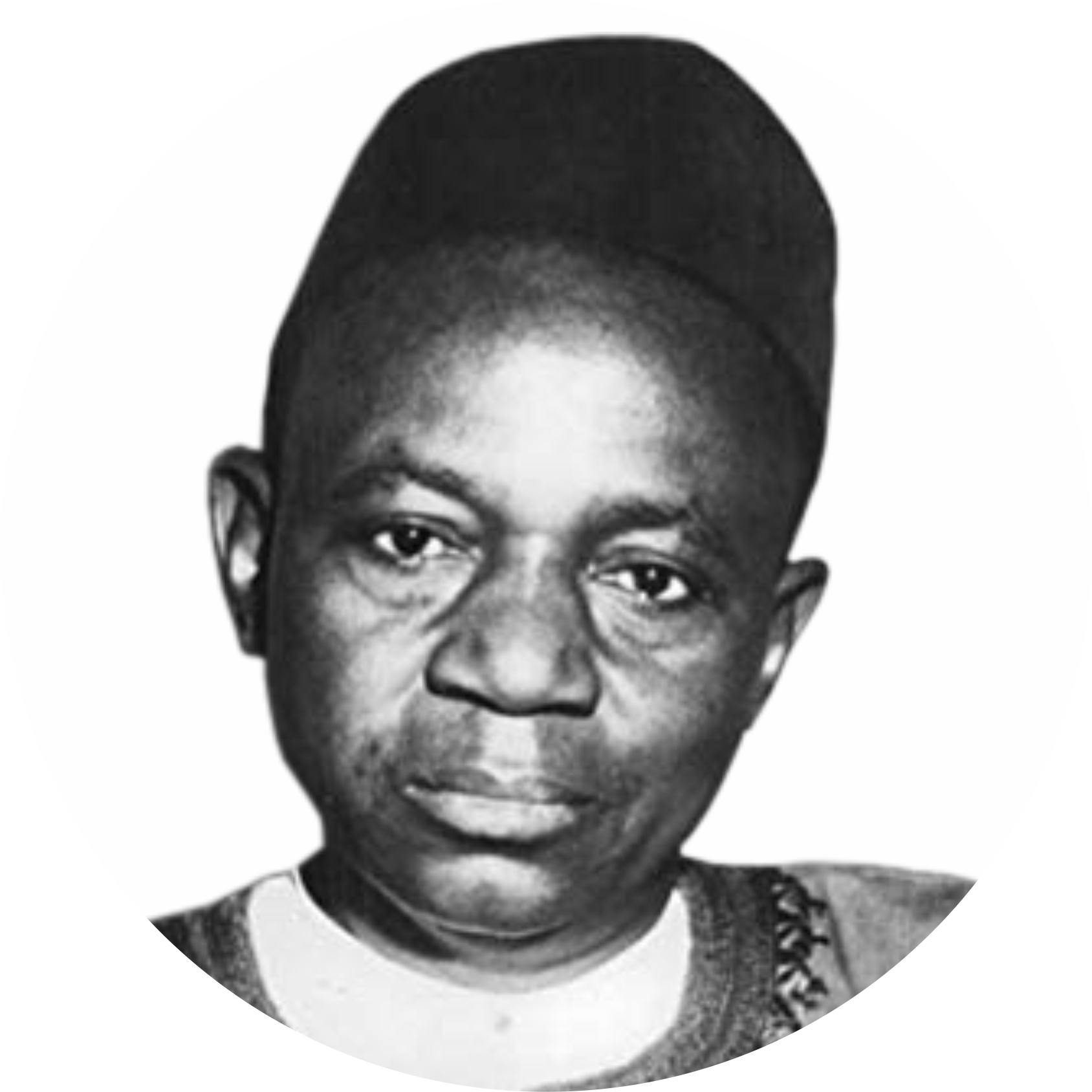Summary of personalities

Mallam Aminu Kano
Mallam Aminu Kano (1920 – 1983) was a Muslim politician from northern Nigeria. He symbolized democratization, women’s empowerment and freedom of speech. He also proposed a fiscal system that favors heavy taxation of the rich in the region and was notably one of the few leading Nigerian politicians that supported equal rights for women. Mallam Aminu Kano joined the Northern Elements Progressive Union as a political platform to challenge what he felt was the autocratic and feudalistic actions of the Native Northern Government. In the 1940s he led a socialist movement in the northern part of the country in opposition to British rule.
Interesting facts about Mallam Aminu Kano
- Kano was often at loggerheads with the colonial government. He attacked it for its misuse of taxes as well its exploitation of Nigeria for Britain’s advantage. His staunch opposition led to the British devising different methods in order to silence him. One such tactic was the offer of a scholarship to study in England. He returned to Nigeria with more entrenched anti-colonial sentiments. The colonial government also attempted to bribe him with different posts, including the editorship of a newspaper and a job as a financial accountant for the government, but Kano merely saw these as tricks.
- While at the Teaching College in Bauchi, he spoke freely on political issues and extended his educational horizon by engaging in various political and educational activities beyond his formal teaching duties. His first publication, Kano, Under the Hammer of the Native Administration, expressed his grievances with British rule when his father, Yusufu, was denied appointment as Chief Alkali of Kano. It was at this time that he began writing for a few of the country’s newspapers and magazines.
- He was a member of the Bauchi General Improvement Union along with Tafawa Balewa as well as secretary of the Bauchi Discussion Circle, a group whose activities were later constricted as a result of an attack by Kano on British indirect rule.
- In 1949, he was sent to the Teacher Training Centre in Maru, Sokoto (now the College of Education in Maru, Zamfara State) to be its headmaster. When the British discovered he had expanded his anti-colonial agitations they offered to send him to the University of Oxford as a lecturer in Hausa, a post which he quickly turned down. During this period, he also established an organisation to improve the quality of Koranic schools in the north.
